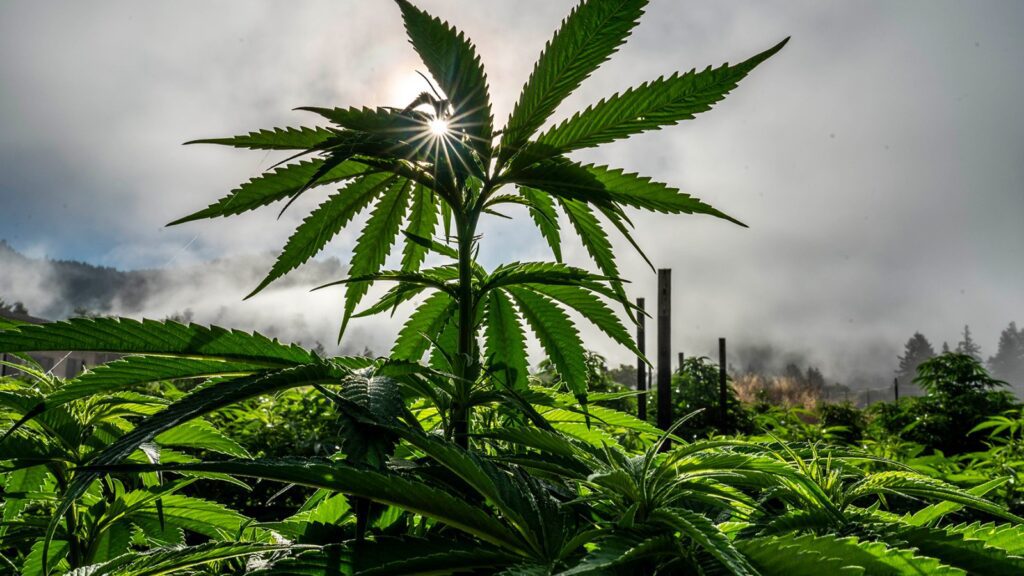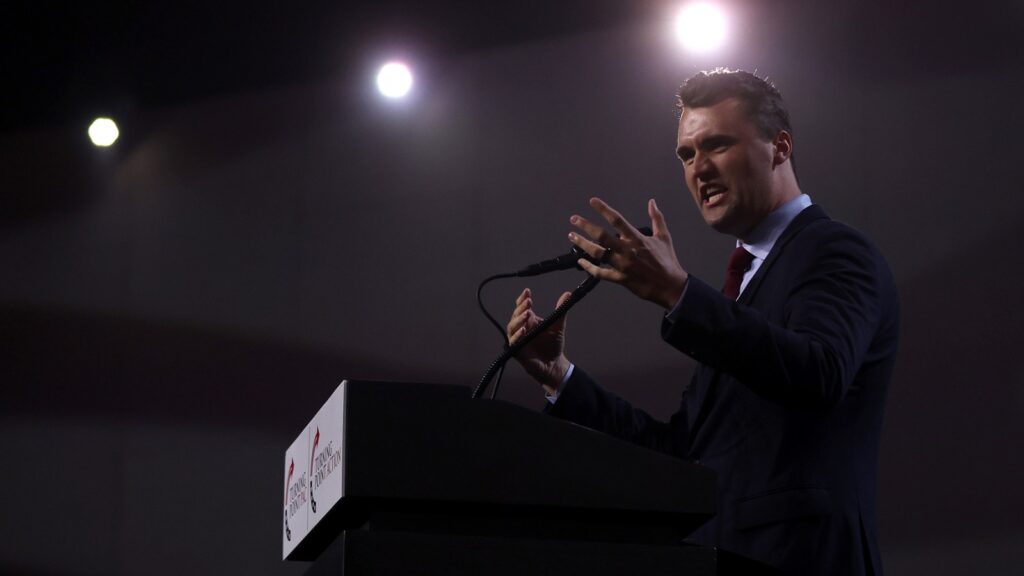Is the Biden Administration’s Pot Decision Historic — Or Half-Baked?
The federal government is on the verge of a landmark retreat from the “reefer-madness” hysteria that has defined the Drug War since its inception more than 50 years ago.
The Drug Enforcement Agency is moving to strike cannabis from the top tier of prohibited substances — Schedule I, the same as heroin — and classify it, instead, as Schedule III, reserved for drugs with “moderate to low potential” for addiction. The news was broken by the Associated Press yesterday, and the Department of Justice confirmed Tuesday evening that the attorney general was circulating a “proposal to reclassify marijuana from Schedule I to Schedule III.”
According to industry experts and advocates, the proposal is at once historic — and a half-measure, which keeps the federal government in the business of criminalizing a drug that 24 states (plus D.C.) have now made it legal for adult recreational use, much like alcohol. Reformers reacted to the news with notes of praise and calls for the White House to take the bolder step of removing pot from the schedules of the Controlled Substance Act altogether. Rep. Barbara Lee, a Democrat from California — the first state to legalize medical cannabis, back in 1996 — lauded the move as a “historic step in the right direction” but insisted that anything short of treating marijuana like alcohol “falls woefully short” of “remedying the harms” of the “racist War on Drugs.”
The proposed re-scheduling of pot would drop marijuana below Schedule II, a class that includes deadly fentanyl and addictive cocaine, and place it on par with substances like ketamine and testosterone. The change will not be immediate, however. The proposal by the Department of Justice will be subject to public comment, before being ultimately enacted, by rule, through the Department of Health and Human Services. It is unclear if this is feasible to accomplish before the November election.
Still a Crime
The DEA’s rescheduling of cannabis will not end or alter marijuana-specific federal penalties, including quantity-based mandatory minimum sentences, according to the Congressional Research Service. Nor will it affect the criminal records of those whose lives have already been disrupted by the Drug War.
But this change would have a significant impact on cannabis commerce. A provision of the tax code (known as 280e) bars businesses that “traffic” in Schedule I and Schedule II substances from taking tax deductions for routine business expenses. This has resulted in state-legal cannabis enterprises facing punishing IRS levies — while providing perverse incentives for black market operators to remain in the shadows.
Schedule III drugs are unaffected by that provision — meaning pot businesses could soon be getting a massive tax break. The National Cannabis Industry Association touted that re-scheduling would bring “federal tax parity to state-legal cannabis businesses,” with CEO Aaron Smith adding that “moving marijuana out of its absurd classification” finally recognizes the “therapeutic value” of pot long recognized by doctors and ”millions of medical cannabis patients.”
Undoing Dark History
The DEA move would correct a half-century-old travesty. Marijuana has been listed as a Schedule I substance since the enactment of the Controlled Substances Act in the early 1970s. But there has never been sound science for legally equating the psychoactive cannabis plant and highly addictive drugs like heroin.
And from the beginning, draconian treatment of pot was tainted by the prejudice of the Drug War’s architect, president Richard Nixon, who sought to wield the power of the state against disfavored groups including people of color, hippies, and Jews, with whom the public associated with the drug. (A rabid antisemite, Nixon complained to his chief of staff, in a recorded 1971 White House conversation, that “every one of the bastards that are out for legalizing marijuana is Jewish.” And he vowed: “By God, we are going to hit the marijuana thing, and I want to hit it right square in the puss.”)
Classifying cannabis as a Schedule I drug meant that it was deemed to have no medicinal value and a high potential for abuse. This designation created a Catch 22; research of Schedule I drugs is tightly restricted, effectively blocking studies that might have demonstrated pharmacological benefits of pot or offer a more honest accounting of the drug’s harm profile.
American voters have long called bullshit on such Drug War fanaticism. Since the mid 1990s, citizen-led ballot initiatives and popular state legislatures have rebuffed the DEA by creating regimes for the distribution of medical marijuana across 38 states — with doctors recommending the drug to treat everything from insomnia to glaucoma.
Will Young Voters Care?
The political dimensions of the decision are potentially significant. The high-profile move to relax the DEA’s stance on marijuana — which the administration previewed in 2023 — is the latest in a string of marijuana reforms the administration hopes will curry favor with younger voters. While Biden was an eager drug warrior during his career in the Senate, the 46th president has already moved to pardon and expunge the federal and D.C. convictions of Americans convicted for simple pot possession, and encouraged governors to take similar measures.
But the Biden proposal stops well short of the full rescheduling of marijuana that progressive lawmakers have pressed the administration to adopt — which would allow marijuana to be treated like beer and liquor. And it keeps the White Houes out of step with public opinion: A record 70 percent of Americans now favor full legalization of cannabis for adult use
A January letter drafted by Sen. Elizabeth Warren and signed by majority leader Chuck Schumer among other Democrats, details the faults of keeping pot under the regime of the Controlled Substances Act. These defects include perpetuating the harms of prohibition, among them, “prison sentences, fines, and asset forfeiture” as well as the potential denial of naturalization and green cards to recent immigrants. Re-scheduling also does nothing to address what lawmakers call the ”growing inconsistency between federal and state law” on regulating medical and recreational cannabis.
Is Anybody Happy?
The rescheduling of marijuana, however, is already looking like the kind of split-the-baby compromise that will find few cheerleaders — outside of pot businesses getting tax breaks, that is. It still provokes the ire of drug warriors, and does not satisfy the social justice aims of progressives.
In the wake of the DEA announcement, Chelsea Higgs Wise, the Executive Director of Marijuana Justice, derided the government’s long history of “targeted enforcement” of marijuana laws “that has left communities of color disproportionately harmed.” She added that “re-scheduling only brings benefits to businesses through tax relief, while our loved ones are left with the guarantee of repetitive surveillance, imprisonment, and collateral consequences.”
Kevin Sabet served in the Office of National Drug Control Policy under Democratic and Republican presidents. He now heads Smart Approaches to Marijuana (and still serves as a director of the DEA Educational Foundation), and has become one of the most prominent voices against the recreational legalization of cannabis. Sabet blasted the decision as “a political statement that only helps the addiction industry.” He alleged the Biden administration had “unilaterally reversed decades of precedent” in the face of “volumes of data confirming marijuana’s harmfulness,” while adding that “raw, crude marijuana… isn’t medicine because it’s popular.”
By contrast, executives for marijuana firms could almost be heard clinking their pot pipes. “This is a major milestone for a marginalized industry that’s been fighting for recognition,” said John Mueller, Founder & CEO of Greenlight, a vertically integrated marijuana business with 28 dispensaries across five states. “We’re more than ready to be recognized as a legitimate industry on its way to becoming a $50 billion market,” he said, adding: “It’s about time we embraced progress and leave outdated practices behind.”





